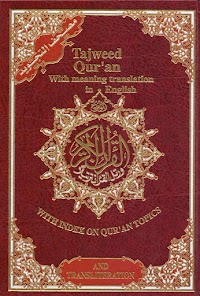Related Posts
- The Biography of the Prophet, may God praise him06 Apr 20180
A detailed account of the life of the Prophet, may god praise him. Download Your web browser doesn't have a PDF plugin. Instead you can cli...Read more »
- Booklet Why Prophet Muhammad married Aisha as a child19 Dec 20170
click here to download Read more »
- Booklet of prophecies of the appearance of the Apostle19 Dec 20170
click here to download Read more »
- How Did Muhammad React to Personal Abuse?15 Dec 20170
How Did Muhammad React to Personal Abuse? Do you believe in Prophet Muhammad? If not, Why? Do you not agree that a person may be rightly judg...Read more »
- Unique Qualities Of The Prophet (SAWS)23 Feb 20170
Shaykh Ali Timimi Shaykh Ali Timimi takes us through some of the unique qualities which were given to the Prophet Muhammad (SAWS). Allah say...Read more »
- Awqaf Magazine ( No.35)19 Mar 20190
مؤلف الكتاب: kuwait awqaf public foundation الناشر: Kuwait Awqaf Public Foundation سنة النشر: 2018 عدد صفحات الكتاب: 28 عدد زيارات الك...Read more »
- كتاب: Tajweed Quran with Meanings Translation and Transliteration in English=مصحف التجويد مع ترجمة المعاني إلى الإنجليزية (ملون)16 Jun 20183
عنوان الكتاب: Tajweed Quran with Meanings Translation and Transliteration in English=مصحف التجويد مع ترجمة المعاني إلى الإنجليزية (ملون)...Read more »











Post a Comment
EmoticonClick to see the code!
To insert emoticon you must added at least one space before the code.